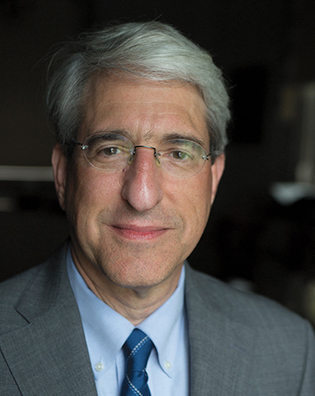 loading
loading
President's LetterSharing YaleOn two Yale partnerships. The Yale Alumni Magazine publishes a letter from President Peter Salovey ’86PhD in every issue. In this letter, the president discusses the Yale-Smithsonian Partnership and the Yale Africa Initiative.  Mark OstowView full imageDear Friends, When I became president of Yale, I announced that one of my goals was to “share Yale” more broadly with the world. I made a commitment to build relationships with other institutions in order to amplify Yale’s contributions in scholarship, education, preservation, and practice. The Yale-Smithsonian Partnership exemplifies the success—and continuing promise—of this collaborative approach. Yale’s history with the Smithsonian Institution—the largest museum and research complex in the world—goes back more than 150 years. In 2016, we formalized this longstanding partnership in order to make greater our shared impact. Students, faculty, and scholars across Yale are now collaborating with colleagues from the Smithsonian through joint research projects, internships, fellowships, courses, and colloquia. Together, they are advancing material culture and collections-based teaching and research to improve our understanding in areas ranging from climate change to migration. In October, Yale and the Smithsonian hosted this year’s meeting of the Global Consortium for the Preservation of Cultural Heritage—a network Yale helped to establish among academic and nonacademic research and educational institutions. I spoke to this group in Washington, DC0, where our meeting focused on diversity and inclusion. The theme, “Museum Communities and Equity,” covered a number of important questions, including how universities, museums, and communities can collaborate to build a common vision for collections and their multifaceted meanings. Several museum directors from Africa participated, and the group examined obstacles to cultural heritage preservation on that continent. Yale is in a unique position to lead in the arena of cultural heritage preservation. Our world-class collections form the basis of phenomenal, hands-on teaching and research across the university, and our strengths in the sciences, history, archaeology, art history, and other fields offer us a special capacity to solve the challenges that surround cultural heritage. The Institute for the Preservation of Cultural Heritage, an interdisciplinary research center at Yale’s West Campus, is home to state-of-the-art laboratories and cutting-edge research collaborations that inform cultural heritage preservation globally. The leaders of the Global Consortium wrote, “The sustainability of cultural heritage is one of the grand challenges of the contemporary world.” I agree, and I am proud that Yale is taking part in this critical work. As we share our knowledge and expertise with people and institutions worldwide, we also benefit immensely from the exchange of new ideas, perspectives, and techniques that this network fosters. Future generations will benefit from Yale’s efforts to understand and safeguard the world’s cultural treasures. Yale forges partnerships that advance education, scholarship, and research. Like the Yale-Smithsonian Partnership, the Yale Africa Initiative builds bilateral relationships that allow us to share Yale with the world—and the world to share with us. These partnerships—with universities, government entities, and other institutions in Africa—enable our students and faculty to conduct innovative research and create educational opportunities, as well as gain knowledge and ideas from engaging with students and scholars with experiences and perspectives far different from their own. Our collaborative model has already yielded superb results. Since I announced the Yale Africa Initiative in 2013, we have increased the number of African students and scholars at Yale by about 65 percent. At least 117 Yale faculty members—in science, medicine, technology, management, history, and other fields—are doing important work related to Africa. Yale’s Global Network for Advanced Management, a network of thirty business schools around the world, now includes four institutions in Africa. Programs like the Yale Young African Scholars and the Leadership Forum for Strategic Impact, focused on African women trailblazers, are helping to prepare future leaders. To learn more about the Yale Africa Initiative, visit https://world.yale.edu/africa. Sharing Yale begins with you. Thank you for serving as ambassadors for this university. With your help, we will continue to forge partnerships commensurate in strength, scope, and impact to Yale’s mission. By working together, we will fulfill our responsibility to “improve the world today and for future generations.” With my warmest wishes, Peter Salovey
The comment period has expired.
|
|